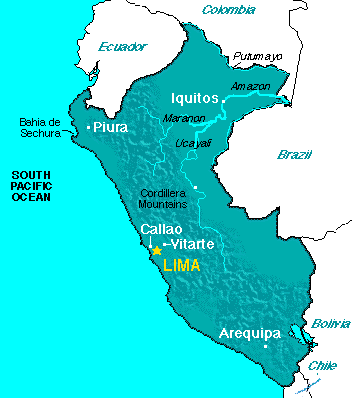Archaeologists rule out Peru's ‘lost city’ discovery claim
 Washington, February 26: The Peruvian Culture Ministry says that stone structures in the country, which were recently suggested to be the ruins of ancient “lost city” of Paititi, were actually shaped by natural forces, not Inca stone workers.
Washington, February 26: The Peruvian Culture Ministry says that stone structures in the country, which were recently suggested to be the ruins of ancient “lost city” of Paititi, were actually shaped by natural forces, not Inca stone workers.
The state media reported on January 10 that a stone fortress had been discovered on the heavily forested eastern slopes of the Andes Mountains.
The reports even carried a statement of Guillermo Torres, the mayor of nearby Kimbiri, that suggested that the complex could be the lost city of Paititi, described in local legend as a citadel built by the Inca hero Inkarri after the Spanish conquest.
Weeks after the announcement of the find, archaeology experts from the Cusco-based National Institute of Culture (INC) arrived at the site, and issued their findings in a report on February 12.
In the four-page document, the investigators revealed that natural chemical and physical processes, including seismic activity, created the stone blocks found at the site, causing them to "appear to be walls or surfaces made by hand".
The report further stated that the experts did not find any “evidence of archaeological structures or buildings … that could suggest a human presence."
It revealed that geological analysis identified the formations as sandstone.
"The stones do not show signs of wear or of intervention from the hands of men from the act of cutting stone," National Geographic quoted the report as stating.
The scientists neither found any mortar on the corners or sides of the stone blocks nor construction foundation for the walls, the report added.
"Additionally no evidence exists that in any moment the sector in question could have been used as a stone-working site for the preparation of stone elements," it said.
Pointing out that similar naturally occurring structures had been found in Machu Picchu also, the scientists said that historical records put the probable location the legendary Paititi city in another part of the Amazon.
However, some experts still expressed hope that the site would prove to be an important artifact of Inca or perhaps pre-Inca culture.
"The claims of it being such an extensive site seemed, as well, too good to be true," said Gregory Deyermenjian, a Massachusetts-based psychologist and explorer who has led expeditions to investigate the Paititi legend.
The National Geographic report also suggested that the announcement from the Culture Ministry might cast a shadow over Torres’ plans to turn the site into a tourist attraction. (ANI)